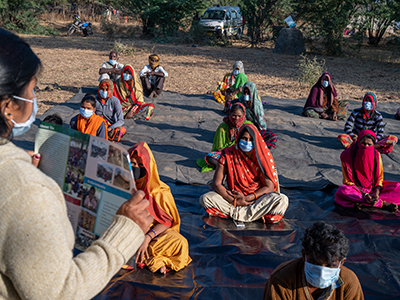Overview
This course aims to provide an introduction to the concept of thinking and working politically. A key element of this is to encourage UNICEF staff to think about how they can apply their local expertise and knowledge of local networks, both formally and informally, to make programming and decision-making more contextually relevant and responsive to local political dynamics.
Learning Objectives
Given existing practice, current developments and opportunities for thinking and working politically within UNICEF, this e-learning module has the following aims.
By the end of the module, you will be:
aware of and able to describe the concept of “thinking and working politically”, and understand and what it entails in day-to-day work and operations
describe and compare associated tools such as Political Economy Analysis (PEA), Everyday Political Analysis and Stakeholder Analysis
aware of and describe the concept of flexible and adaptive programming, and recognise it as part of an approach to decision-making, programme design and implementation that responds to changes in the political context
aware of frameworks, tools and approaches – both formal and informal - that can be used as part of politically-savvy decision-making
able to identify how thinking and working politically can be embedded in current strategic planning processes, such as the New Generation Situation Analysis
list and identify key internal and external resources and guidance for thinking and working politically.
Audience
- UNICEF staff (country offices, Regional Offices and HQ)
- UNICEF and National Committee consultants, interns, volunteers, goodwill ambassadors and National Committee board members
Length
It should take you about 60 minutes to complete this self-paced course
Methodology
This course is composed of an introductory animation and a case study, and then five self-paced modules with a knowledge check at the end of each module. Each module begins with an overview and introduces key learning points illustrated by interactive icons and elements. Real case studies are used throughout the course to provide examples of thinking and working politically in practice. Links to key reading and resources are also clearly marked throughout. The course ends with a quiz testing the newly acquired knowledge.
Structure
The course is composed of six modules:
- Introduction to thinking and working politically
- What is thinking and working politically?
- Political Economy Analysis (PEA)
- Complementary approaches and frameworks for political analysis
- Thinking and working politically in practice for UNICEF
- Quiz
Contact Details
Content issues and question: Shivit Bakrania sbakrania@unicef.org
Technical issues, use this support request form.
